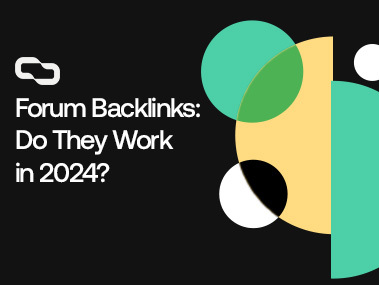Get links on brand new relevant articles for a boost of Authority and Relevance that’ll catapult your SEO. Our links include both DR and Traffic, so you don’t have to choose between one or the other.

In this article, you’ll learn more about link juice, how it works, and why it’s important for your website’s SEO.
We’ll also cover things like what affects link equity, how to maximize the amount of juice you get per link, and 3 common link juice mistakes that you should avoid at all costs.
So without further ado, let’s jump right into it.
Key Takeaways
- Link juice or link equity refers to the ranking value (power) a link transfers from one page to another.
- Domain and page authority, link relevance, internal linking, and link type are crucial factors that impact how much link juice a page can pass.
- Acquire high-quality backlinks, optimize internal links, use contextual anchor texts, and build Tier 2 links to enhance your website’s link equity and improve SEO performance.
What Is Link Juice?
Link juice, also known as link equity, refers to the value or authority passed from one webpage to another through hyperlinks.
The term originated from Google’s early PageRank algorithm, an algorithm developed by Larry Page and Sergey Brin, the founders of Google.
This algorithm is used to assign a score ranging from 0 to 10 based on how helpful Google considers a page to be.
The more valuable or authoritative a page was, the higher its score, and the more link juice it could pass to other pages through its outbound links.
How Does The PageRank Algorithm Work?
At its core, the PageRank algorithm acts like a popularity contest for websites.
It operates under the premise that a page with many high-quality backlinks would be more valuable and thus deserve a higher ranking.
Google takes both the number and quality of backlinks into account to determine a page’s popularity and rank.
Think of backlinks as votes: when a trusted source links to your page, it’s essentially vouching for your content and telling Google, “Hey, this page is a reliable resource on this topic, and you should rank it higher!”
However, not all backlinks are created equal.
A vote from a reputable source like The New York Times carries much more weight than one from a newly created or low-quality blog.
Google’s algorithm weighs backlinks based on the authority and trustworthiness of the linking site, meaning that the more credible the linking site is, the more link juice it will pass.
What Affects Link Juice?
1. Domain Authority
Domain Authority (DA) or Domain Rating (DR) measures the overall strength and credibility of an entire domain.
These metrics, created by third-party SEO tools like Moz and Ahrefs, are good indicators of a website’s potential to rank well in search engines.
The higher the domain authority of the linking site, the more juice it’ll pass to the linked page. For instance, a backlink from a high-DA site like The New York Times will pass significantly more link equity than one from a new or lesser-known blog.
Factors Affecting Domain Authority:
- Age of the Domain: Older domains tend to have a higher DA due to their established presence and credibility.
- Number of Quality Backlinks: More external links pointing to the domain improve its authority.
2. Page Authority
Page Authority (PA) measures the credibility and popularity of a particular page within a domain.
Even if a website has a high DA, not all pages carry the same authority.
If a page has many high-quality backlinks, it will have more link equity to pass to others.
Factors Affecting Page Authority:
- Backlinks to the Page: High-quality backlinks directly to the page significantly increase its authority.
- Internal Links: Pages that receive internal links from high-authority pages within the same domain will have higher authority.
3. Internal Links
Internal links help channel juice within your website, increasing the flow to other important pages. The more internal links pointing to a page, the more link juice it will receive.
Internal links also help Google bots crawl your website and understand the connection between your pages.
4. Number of Outbound Links
Link equity is distributed among all outbound links.
This means that the more external links a page has, the less link juice each link receives.
To avoid dilution, aim for relatively few outbound links, usually 2-3 per page, and apply the nofollow attribute to low-quality or user-generated links.
5. Link Relevance
Link relevance refers to how closely the linking page’s topic aligns with the linked page’s content. Links from relevant articles are safer and can pass more juice than those from unrelated ones.
Contextual links within relevant content are especially valuable. Therefore, it’s crucial to ensure that the linking page’s topic aligns well with the linked page’s content.
6. Type of Link
There are two main types of links: dofollow and nofollow. Dofollow links pass link juice, while nofollow links do not directly contribute to link juice but can still be useful for referral traffic and visibility.
Only dofollow links pass link juice, so prioritize obtaining them for maximum benefit.
7. Anchor Text
Anchor text is the clickable text of a hyperlink. Keyword-rich anchor texts (exact and partial matches) pass the most link juice but should be used sparingly to avoid over-optimization penalties.
It’s essential to use a variety of anchor texts, including branded, generic, and long-tail variations, and reserve exact match anchors for high-authority links.
8. Link Placement
Link placement refers to where the link is located on a webpage. In-content links (within the article body) carry more weight than those in the footer or sidebar.
Link Placement Hierarchy:
- In-Content Links: Links embedded within the article body.
- Navigation Links: Links within primary and secondary navigation menus.
- Footer Links: Links placed at the bottom of the page.
- Sidebar Links: Links located in sidebars or widgets.
How to Get More Link Juice?
1. Add More Internal Links
Internal links from other pages can increase link juice flow.
Internal Linking Best Practices:
- Your homepage often has the most authority, so add links to other important pages for a boost.
- Identify pages with high link juice (many incoming links) and link them to crucial pages.
- Organize your site into clusters or topic groups and link related pages.
- Identify and fix orphan pages (those with no internal links) to improve link equity distribution.
- After publishing a new page, add internal links to it from older pages to help it get indexed faster and receive an initial ranking boost.
Agency Tip: You can find pages with the strongest internal linking profile on your website using the Page Rating (PR) in Ahrefs Site Audit Page Explorer.
2. Content Pruning
Content pruning involves removing low-performing or outdated pages to prevent them from wasting your domain’s link juice.
However, it’s important not to remove pages that contribute to your site’s topical coverage.
3. Redirect Broken Links
Redirecting old or broken URLs helps retain link equity and improves user experience. Regularly check for broken links using tools like Google Search Console or Ahrefs, and redirect valuable URLs to relevant pages to retain any residual link juice.
4. Don’t Add Too Many External Links
While external links are important, too many can dilute your page’s link juice.
- Limit outbound links to improve user experience, usually keeping it to 2-3 per page.
- Apply the nofollow attribute to user-generated or low-quality links.
- Ensure all outbound links are relevant and working.
5. Use Contextual Anchor Texts
Using relevant anchor texts for both internal links and backlinks helps pass more link juice and sends relevance signals to search engines.
- Use a mix of keyword-rich, branded, and generic anchor texts.
- Ensure anchor texts reflect the linked page’s topic.
- Limit exact match anchors to avoid penalties.
6. Get Link Insertions
Getting link insertions from established pages with high link equity can pass valuable link juice to your website.
However, finding good opportunities can be tough, so consider working with an expert who can help secure quality link insertions.
7. Build Tier 2 Links
Tier 2 link building is the process of building backlinks to your backlinks. This process boosts the popularity of your backlinks and helps pass more link juice to your site.
Common Link Juice Mistakes to Avoid
1. Over-Optimizing Anchor Text
Using too many keyword-rich anchors can make your page appear as a black sheep, raising red flags to Google and potentially resulting in penalties.
Tips to Avoid Over-Optimization:
- Diversify Anchor Texts: Include branded, generic, and long-tail variations.
- Maintain a Natural Distribution: Ensure anchor text usage appears organic.
2. Relying on Low-Quality Links
Links from low-quality sources like link farms, automated backlinks, and cheap PBNs do more harm than good.
Stick to reputable links to maintain a healthy backlink profile.
How to Identify and Avoid Low-Quality Links:
- Check backlinks against metrics like DA, PA, and spam score.
- Steer clear of paid link schemes and unnatural link-building methods.
3. PageRank Sculpting
Link juice is distributed among all outbound links.
Back in the day, when you nofollow links, the juice gets redistributed among the dofollow ones only.
For example, if a page has 4 dofollow outbound links, each link gets 25% of the juice.
If you nofollowed one of the links, (3 dofollow and 1 nofollow) the juice that was going to that link will get redistributed among the dofollow links.
So, now each link gets 33% of the juice. Nofollow 3 links and keep one as dofollow, and the dofollow link will get 100% of the juie.
This technique is called PageRank sculpting, and it was pretty heavily among link builders in the past.
However, this technique no longer works as Google now doesn’t redistribute the juice when there are nofollow links.
So, if the page has 4 dofollow links, each link gets 25% juice. When you nofollow one of the links, each of the 3 dofollow links will still have 25% juice. The remaining 25% will be wasted.
FAQs
Why is link juice important?
Link juice is crucial because it helps determine a page’s authority and ranking potential in search engines. Pages with more high-quality inbound links gain higher authority, leading to improved SEO and better visibility in search results.
How to check link juice in SEO?
Check link juice using tools like Ahrefs, Moz, and SEMrush. These tools provide insights into domain and page authority, backlink quality, and internal linking structures, helping you assess link juice distribution and backlink strength.
Which link passes more link juice to SEO?
Dofollow links from high-authority and relevant websites pass the most link juice. Links placed within the main content body, rather than the footer or sidebar, are more valuable for SEO.
How to get link juice?
Get link juice by acquiring high-quality backlinks from authoritative sites, optimizing your internal link structure, using contextual anchor texts, and building Tier 2 links to strengthen your existing backlinks.
Conclusion
Link juice determines how your pages perform in search engine results pages.
By understanding what affects link juice flow and avoiding common mistakes, you can enhance your site’s link equity, improve your SEO, and rank higher in search results.
Keep these strategies in mind to ensure that you’re effectively maximizing your link juice for better visibility and rankings.
If you need help with link-building, feel free to book a courtesy consultation call with one of our expert link juicers.
Find out your exact cost of ranking for your dream keyword
Find out nowLet’s get you ranking now
If you want the team at Get Me Links to help you get more traffic
Book a call NOW Back to Blog
Back to Blog 10 Minutes Read
10 Minutes Read


